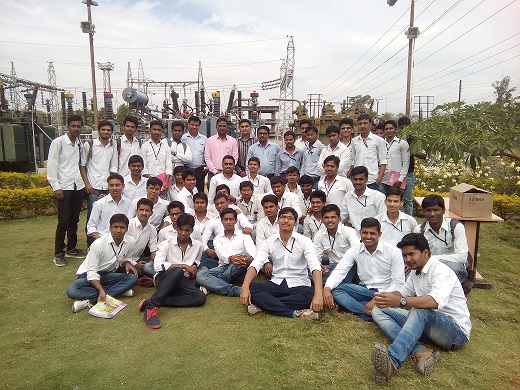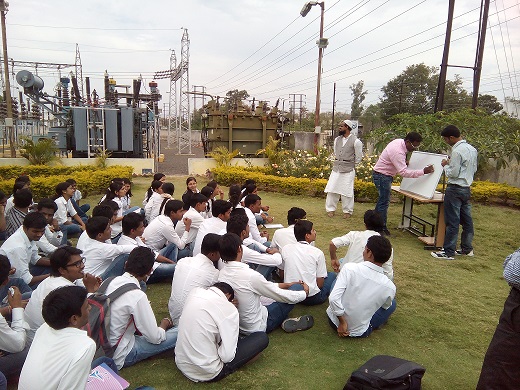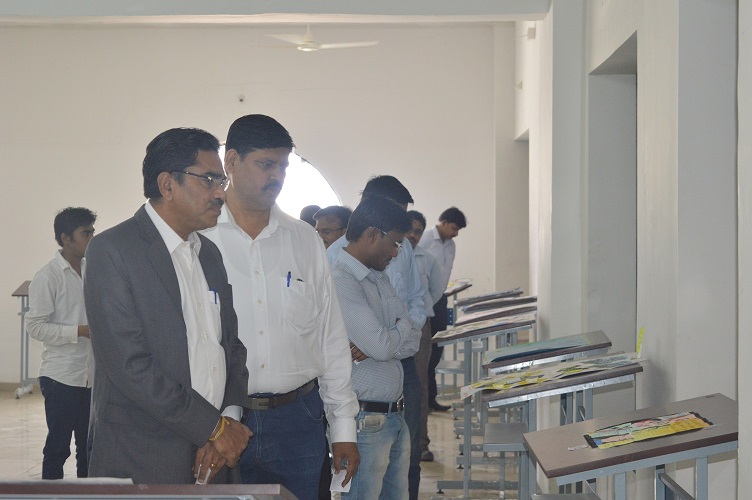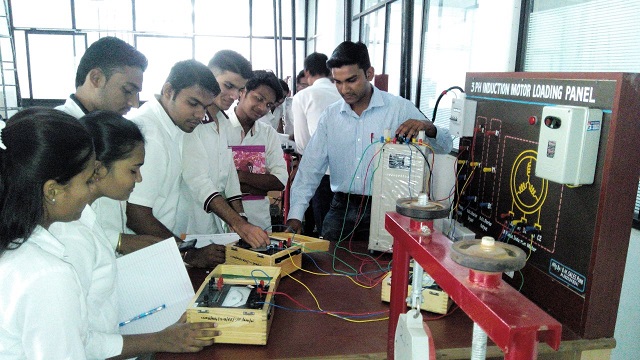| Prof. A. N. Mudiraj | Associate Professor & Head | hodee@csmssengg.org |
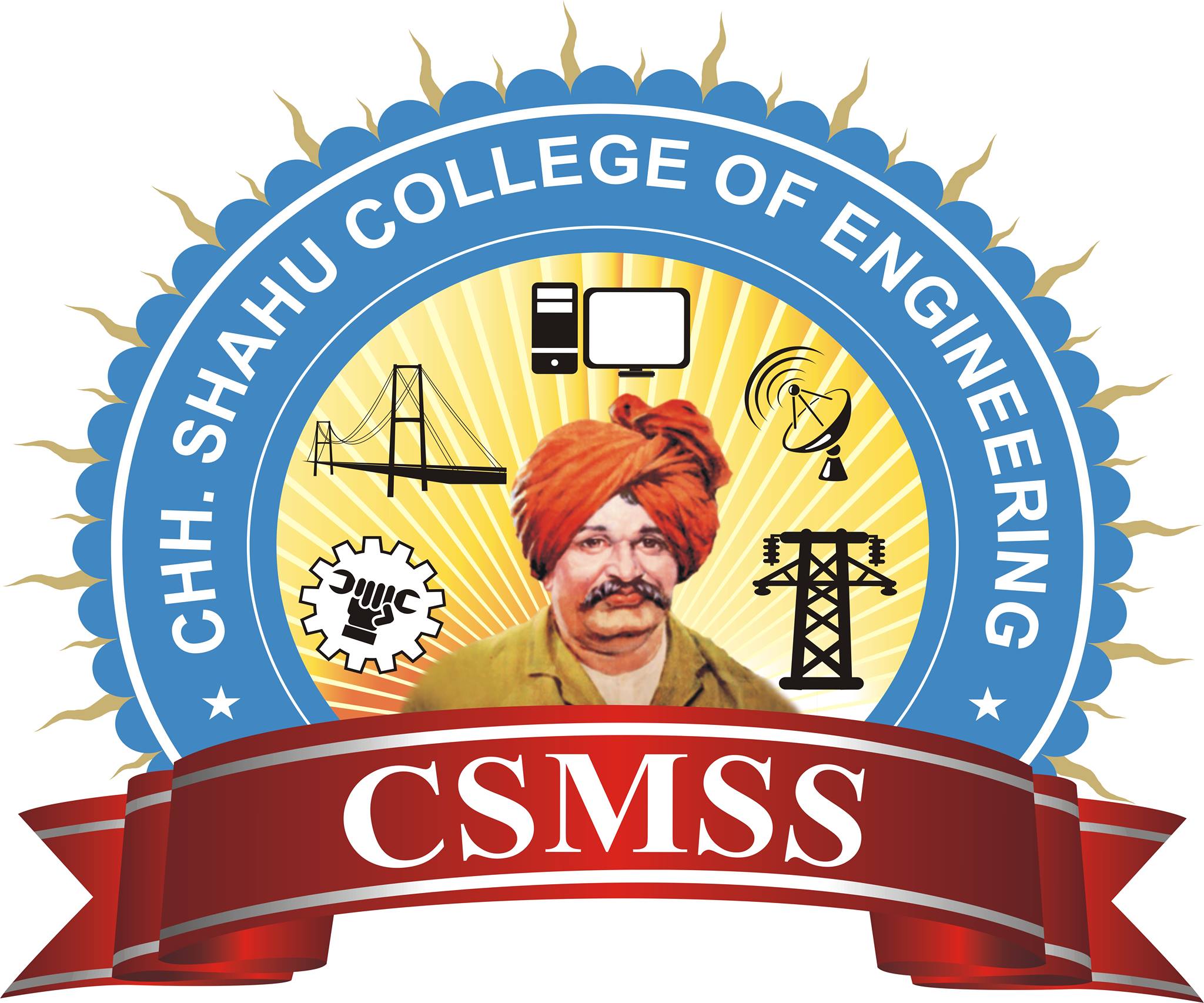
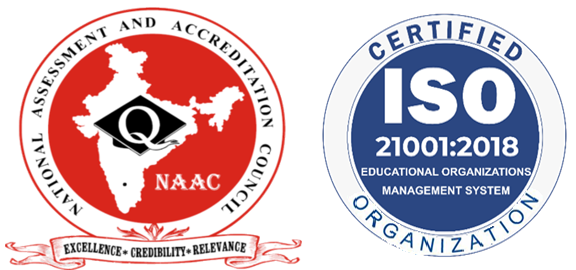
CSMSS
CHH. SHAHU COLLEGE OF ENGINEERING
Approved by AICTE-New Delhi, DTE-Govt. of Maharashtra,
Affiliated to Dr. Babasaheb Ambedkar Technological University, Lonere.
DEPARTMENT OF ELECTRICAL ENGINEERING (Post Graduate)
Vision of the Department
To be a role model in developing electrical engineering graduate with knowledge, skill & ethics.
Mission of the DepartmentWe, at department of electrical Engineering, are committed to achieve our vision by-
M1: Quality education, training, knowledge and skill necessary to excel in their careers.
M2: Research and development, innovative solution that are efficient, sustainable and responsive to the needs of industry and society.
M3: Diversity, equity and inclusion in all aspects of department's activities, supportive and inclusive environment.
M4: Resources for local community, providing expertise, advice and solution related to electrical engineering
Program Educational Objectives (PEO’S)Graduates will be able to :
- PEO 1: To provide the student with the knowledge of basic science and social science in general and electrical engineering in a particular so as to impart the necessary skill to analyze and synthesize electrical circuits algorithm and complex apparatus.
- PEO 2: To provide a technical knowledge skill and competencies to identify comprehend and solve problem in the industry Research and academic related to power information and electronic hardware.
- PEO 3: To prepare the students to successfully work in various Industrial and government organizations both at the national and international level with professional competencies and ethical administrative acumen so as to be able to handle critical situation and meet deadlines.
Click Here for Program Outcomes (PO’S)
Program Specific Outcomes (PSO’s)
Graduates will be able to :
- PSO 1: Apply fundamental knowledge to identify, formulate, design examine various problems of electric circuits, power electronics and power systems.
- PSO 2: Using modern technological tools to plan design, model and analyze electric system in order to participate in lifelong learning and to adept effectively in multidisciplinary environment.
The Department of Electrical Engineering provides an exciting platform for undergraduate education and research, committed to advancing knowledge and delivering rewarding learning experiences through its 4-year B.E. Electrical Program. Supported by well-equipped laboratories such as the Power System Lab, Digital Signal Processing Lab, and High Voltage Engineering Lab, alongside a diverse faculty proficient in various sub-disciplines of Electrical Engineering, the department fosters collaboration with researchers both within and outside the institute. Notably, it boasts state-of-the-art solar training facilities, crucial for skill development under the Skill India program. Additionally, the recent inauguration of the Center of Excellence Electrical Vehicle Lab, in collaboration with industry leaders like ISIE India, ASDC, and Morsas Garage (MG Motors), marks a significant stride towards excellence in electric vehicle technology education. This pioneering initiative, alongside labs like Distribution Automation Lab and Power Quality Lab, positions the department as a nucleus for innovation and talent development, driving the Marathwada region towards a sustainable and electrically powered future.
Goals and Objectives:
Enhance student learning experiences:
Goal: To provide rewarding learning experiences for undergraduate students enrolled in the B.E. Electrical Program.
Objective: Implement interactive teaching methods and incorporate real-world applications into the curriculum to enhance student engagement and understanding.
Develop technical skills:
Goal: To equip students with practical skills essential for the electrical industry.
Objective: Provide hands-on training in well-equipped laboratories such as the Power System Lab, Digital Signal Processing Lab, and High Voltage Engineering Lab to enhance students' technical competencies.
Promote sustainable energy initiatives:
Goal: To contribute to the development of sustainable energy solutions in the Marathwada region.
Objective: Utilize state-of-the-art solar training facilities to train students and professionals in renewable energy technologies, thereby supporting the Skill India program and promoting sustainability.
HoD Message

Dear Students,
As we embark on this academic journey together, I want to take a moment to express my heartfelt appreciation for your dedication and passion for learning. You are the driving force behind our academic community, and your thirst for knowledge inspires us all.
In the halls of academia, we are not just learners; we are explorers charting new territories, innovators pushing the boundaries of what is possible, and dreamers. The field of electrical engineering is constantly evolving, and several trends are expected to shape its future. Few of them are:
- Renewable Energy Integration: Electrical engineers will continue to play a crucial role in the integration of renewable energy sources such as solar, wind, and hydroelectric power into existing electrical grids. This involves designing efficient power conversion systems, smart grid technologies, and energy storage solutions.
- Electric Vehicles (EVs) and Infrastructure: With the increasing adoption of electric vehicles, electrical engineers will be involved in developing advanced battery technologies, charging infrastructure, and efficient power management systems for EVs.
- Internet of Things (IoT): The proliferation of IoT devices in various sectors such as healthcare, manufacturing, transportation, and smart homes will create opportunities for electrical engineers to design low-power, wireless communication systems, sensor networks, and data analytics algorithms.
- Artificial Intelligence (AI) and Machine Learning: Electrical engineers will leverage AI and machine learning techniques to optimize power systems, improve automation in industrial processes, enhance cyber security measures, and develop intelligent control systems for various applications.
- Smart Grid Technologies: The development of smart grid technologies will enable more efficient, reliable, and resilient power distribution networks. Electrical engineers will contribute to the design and implementation of advanced monitoring, control, and optimization algorithms for smart grids.
- Sustainable Solutions: There will be an increasing focus on developing sustainable solutions to address environmental challenges. Electrical engineers will work on energy-efficient technologies, such as energy harvesting systems, green buildings, and eco-friendly power generation methods.
Overall, the future of electrical engineering will be characterized by innovation, interdisciplinary collaboration, and a commitment to addressing global challenges through technology.
| |
- Electrical Machine Laboratory
- High Voltage and Measurement Laboratory
- Industrial Automation and Microcontroller Laboratory
- Power System & Software Laboratory
- Power Electronics & Industrial drives Laboratory
- Network & Control System Laboratory
University Syllabus (PG)
Faculty/Staff List (Under Graduate - Electrical Engineering)
| Dr. S. R. Karpe | Associate Professor | srkarpe@csmssengg.org |
| Prof. N. N. Nikam | Assistant Professor | nnnikam@csmssengg.org |
| Prof. V. V. Jogdand | Assistant Professor | vvjogdand@csmssengg.org |
| Prof. A. D.Salpe | Assistant Professor | adsalpe@csmssengg.org |
| Prof. S. S. Chandankar | Assistant Professor | sschandankar@csmssengg.org |
| Prof. P. B. Pawar | Assistant Professor | pbpawar@csmssengg.org |
| Prof. S. R. Bakal | Assistant Professor | srbakal@csmssengg.org |
| Prof. P. S. More | Assistant Professor | psmore@csmssengg.org |
| Prof. S. V. Kale | Assistant Professor | svkale@csmssengg.org |
| Prof. R. G. Gadappa | Assistant Professor | rrgadappa@csmssengg.org |
Faculty / Staff List (Post Graudate - Electrical Engineering)
| Dr. M. G. Aush | Associate Professor | mgaush@csmssengg.org |
Supporting Staff List (Electrical Engineering)
| Mr. A. V. Malkar | Electrician |
| Mr. V. D. Kale | Lab Assistant | vinodkale955@gmail.com |
Our Institute
Courses
Contact Us
- Chh.Shahu College of Engineering,
- Kanchanwadi, Paithan Road,
- Chhatrapati Sambhajinagar (Aurangabad), MS, India.
- Tel.: (0240) 2646363 , 2646373,
- 9921127099 ,
- 9011629299












